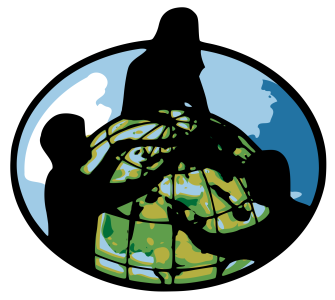
“DAD THERE’S A ZUBAT ON YOUR SHOULDER DON’T MOVE!”
This phrase, or some variant, has likely been shouted by thousands of ten-year-old across the nation this week. Today, it was also shouted by a twenty-eight-year-old grown woman.
I am that woman.
The news (and likely your Facebook feed) have been overrun with images of folks wandering around, looking for Pokémon. They are congregating at Pokéstops and having conversations as they all try and catch the same Meowth.
Yes, there are important considerations to make about the game, from privacy issues to the very real struggles it reminds us of people of color (particularly Black men) face existing out in the real world. I don’t mean to invalidate any of those important discussions.
I do want to call out, though, a frustrating argument I’ve seen from both educators and non-educators. The argument boils down to something like: “If you’re engaging in Pokémon Go and not paying attention to _______ then you’re part of the problem with EdTech/education/society.”
I am obviously a huge proponent for ensuring that students engage in meaningful and in-depth discussions around social issues. That’s part of being a good educator. Still, it’s important to remember that even with those discussions happening, play and joy are still essential to human development. Video games, when used properly, may even enhance that development. A study from Michigan State University saw a relationship between creativity and video game playing in adolescents, and a study out of Columbia showed that it could have positive effects even on young children.
The human mind is more than capable of dealing with multiple issues; it doesn’t have to be a zero-sum argument. Giving students space to engage with new technologies simply because it’s *gasp* “fun” doesn’t have to mean we are shielding them. Students and teachers can be active, engaged citizens working to end injustice and take time to enjoy a pop culture phenomenon.
If anything, this especially applies to teachers and students of color and/or from oppressed communities. Yes, EdTech and technology can be a way for us to digitally organize or, as educator Rafranz Davis shows us, for students of color to share their technological gifts or teach us about digital equity. These are essential.
But students and teachers in and from oppressed communities often deal with trauma and oppression on a near-daily basis. Why should that also exclude them from being able to use technology with the same carefree joy that other people get? Audre Lorde reminded us that “Caring for myself is not self-indulgence, it is self-preservation, and that is an act of political warfare.”
The oppressor doesn’t want the oppressed to feel joy. The oppressed have a right to look at that notion, know they are still doing the work, and say, “Forget that. Right now I am feeling the joy of catching this Jigglypuff.”
Here’s the thing: if you weren’t already committed to tackling any number of the world’s injustices before Pokémon Go came out, it probably wasn’t the game’s recent popularity that was stopping you.
So, instead of policing joy, let’s vow to take better care of each other and ourselves. That means a recommitment to the work we do as educators to ensure that we create socially conscious and safe spaces for students. It also means laughing right along with them when they find the simple, marvelous things that are fun purely because they are.
Who knows? It might even give you the opportunity to point at their phone and say, “Hey! You’re good at that! Could you teach me something new?”
(FTR: I totally caught that Zubat. You’re welcome, Dad.)

[CORRECTION and UPDATE: The original post misstated the findings of the MSU study. The article has been updated to better reflect the MSU study, as well as provide additional evidence.]


